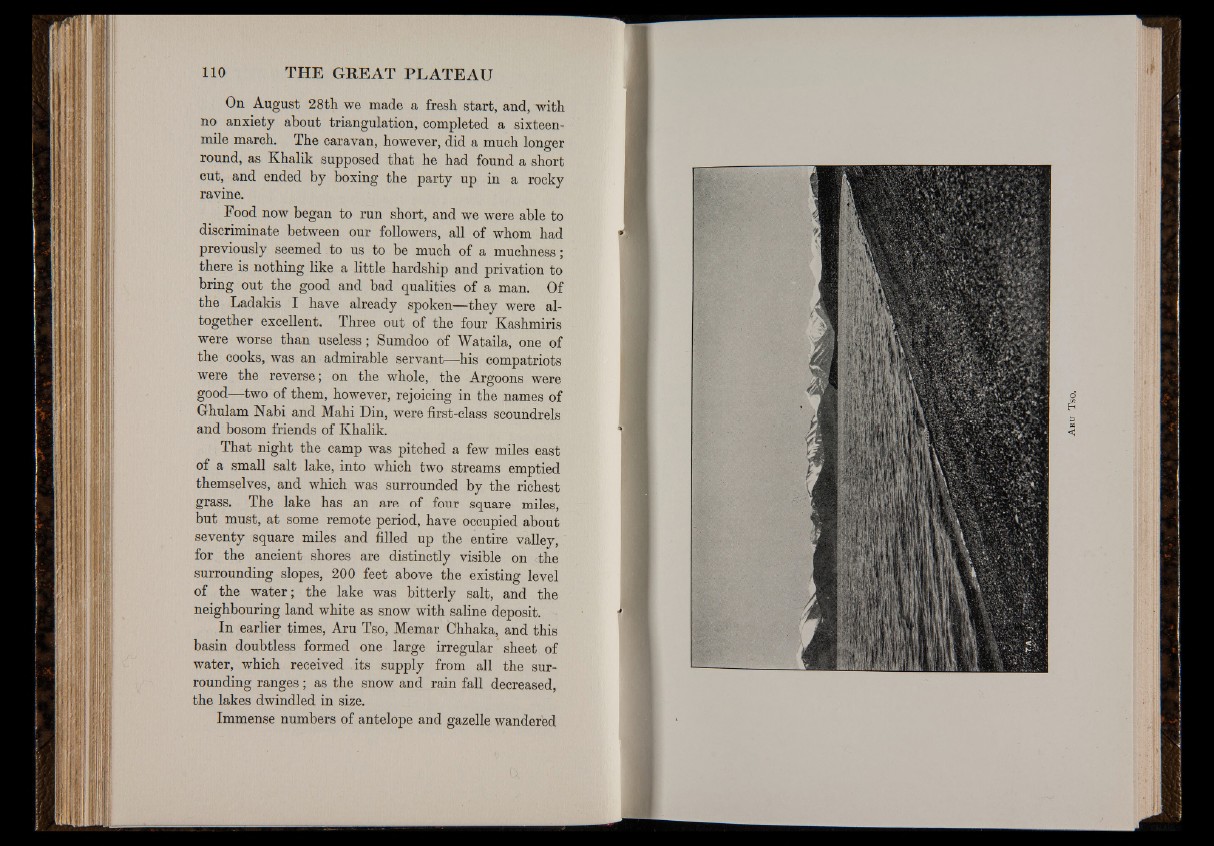
On August 28th we made a fresh start, and, with
no anxiety about triangulation, completed a sixteen-
mile march. The caravan, however, did a much longer
round, as Khalik supposed that he had found a short
cut, and ended by boxing the party up in a rocky
ravine.
Food now began to run short, and we were able to
discriminate between our followers, all of whom had
previously seemed to us to be much of a muchness;
there is nothing like a little hardship and privation to
bring out the good and bad qualities of a man. Of
the Ladakis I have already spoken—they were altogether
excellent. Three out of the four Kashmiris
were worse than useless; Sumdoo of Wataila, one of
the cooks, was an admirable servant—his compatriots
were the reverse; on the whole, the Argoons were
good—two of them, however, rejoicing in the names of
Ghulam Nabi and Mahi Din, were first-class scoundrels
and bosom friends of Khalik.
That night the camp was pitched a few miles east
of a small salt lake, into which two streams emptied
themselves, and which was surrounded by the richest
grass. The lake has an are of four square miles,
but must, at some remote period, have occupied about
seventy square miles and filled up the entire valley,
for the ancient shores are distinctly visible on the
surrounding slopes, 200 feet above the existing level
of the water; the lake was bitterly salt, and the
neighbouring land white as snow with saline deposit.
In earlier times, Aru Tso, Memar Chhaka, and this
basin doubtless formed one large irregular sheet of
water, which received its supply from all the surrounding
ranges; as the snow and rain fall decreased,
the lakes dwindled in size.
Immense numbers of antelope and gazelle wandered